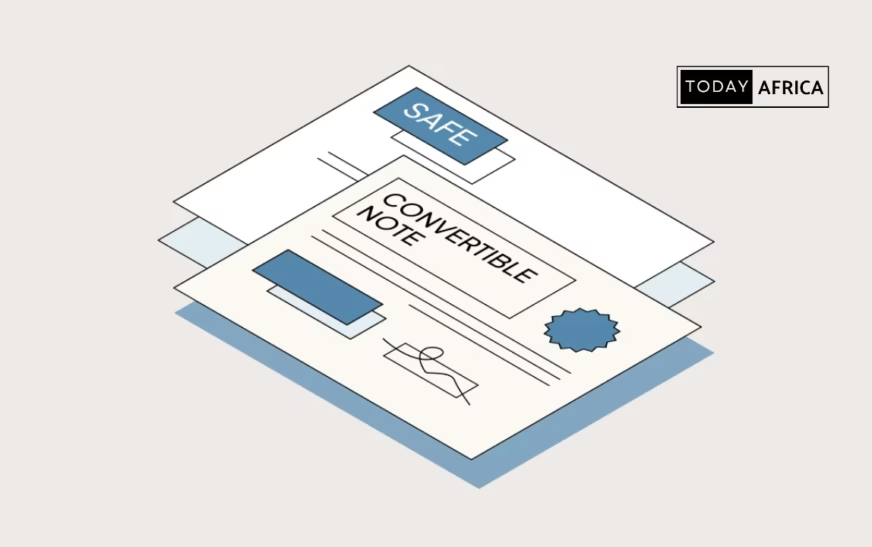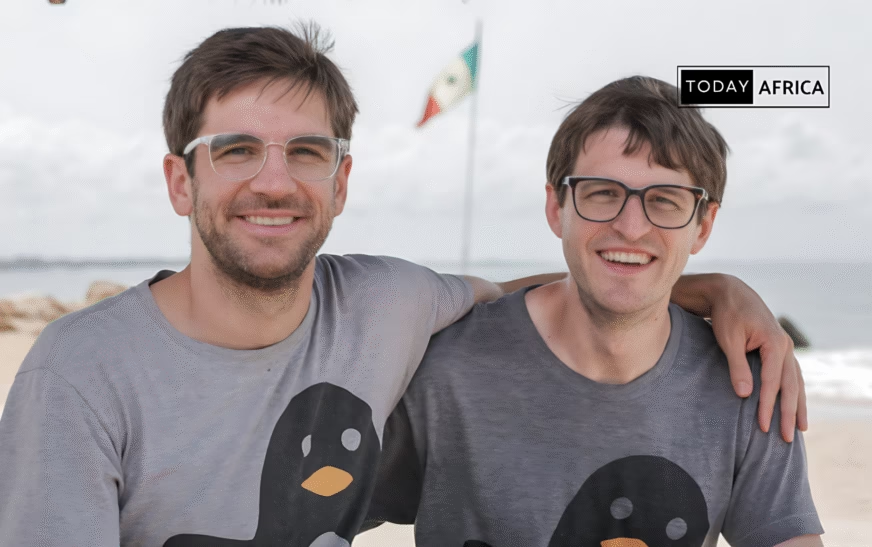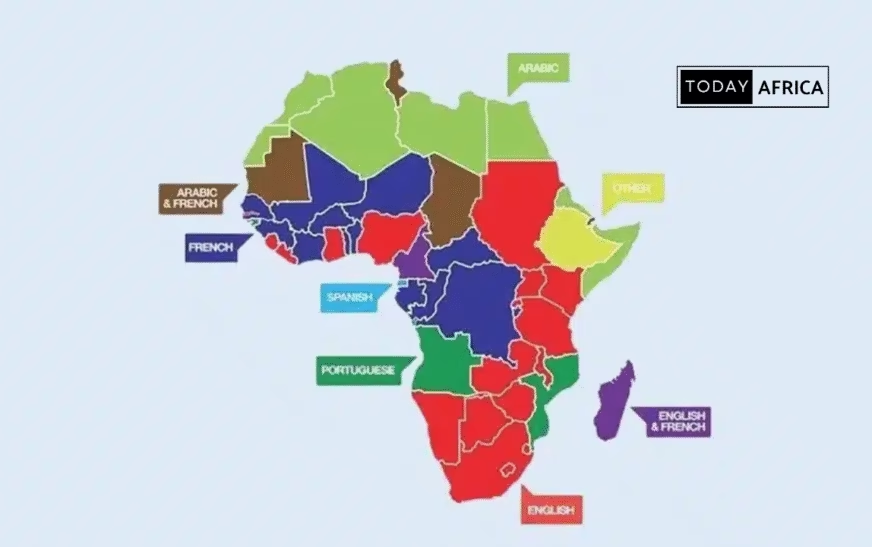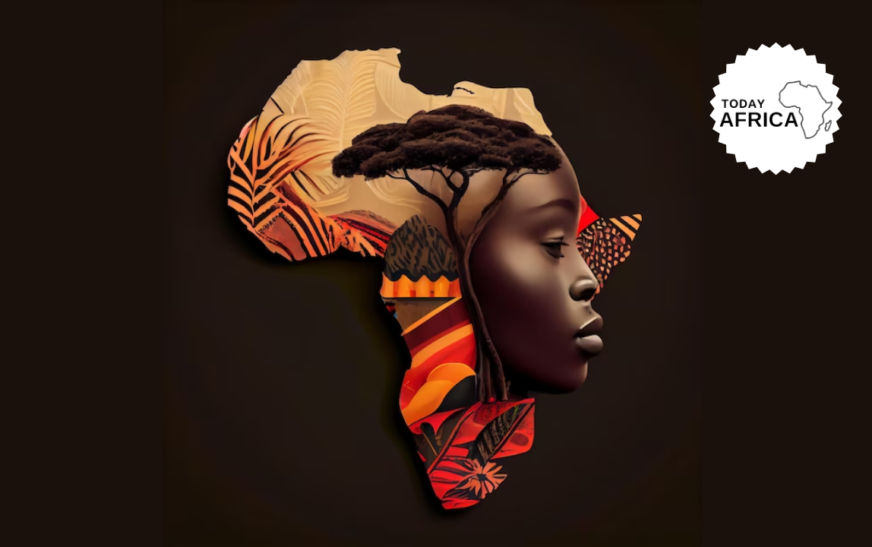On a hot Wednesday afternoon in Lagos, a young founder sits across from a potential investor at a café in Lekki.
Between the hum of air conditioning and the clatter of coffee cups, they’re arguing, quietly but firmly, over a single clause in a document.
“It’s just a simple agreement for future equity,” the investor says, leaning back, almost casual. “Everyone uses it now.”
The founder hesitates. SAFE. Convertible note. Interest. Maturity. Valuation cap. It all sounds deceptively straightforward until you realize what’s at stake: ownership, control, the future of a company still finding its feet.
Across Africa, more and more early-stage startups are raising capital through instruments like Convertible Notes and SAFEs agreements (Simple Agreements for Future Equity).
These tools, imported from Silicon Valley’s startup culture, promise speed and flexibility.
But on this continent, where legal systems vary, currencies swing wildly, and venture investing is still young, the fine print carries outsized weight.
And right now, as African founders raise record early-stage rounds and investors search for faster, leaner deal structures, understanding how these agreements work (and where they fail) is no longer optional. It’s essential.
Why these instruments exist
A decade ago, raising early capital in Africa meant either giving up equity or surviving on grants and bootstrapping. Formal venture capital was still rare, angel syndicates even rarer.
Then came the wave: healthtech, logistics, edtech, and fintech startups like Flutterwave, Andela, Paystack, and M-Kopa proved that African founders could build globally competitive businesses.
Investors followed, but they faced a practical problem.
How do you invest small amounts quickly, without the long legal process of an equity round?
Enter the convertible note and the SAFE.
Convertible notes began as short-term loans that eventually convert into equity when the company raises a future priced round. They carry interest and a maturity date, so technically, the startup owes the investor money until that conversion happens.
SAFEs, on the other hand, are not loans. They were introduced by Y Combinator in 2013 as a simpler alternative, no interest, no maturity date, just a promise that the investor’s cash today will convert into equity later, under agreed-upon conditions.
In theory, both instruments allow founders and investors to skip early valuation debates and move fast. In practice, they expose something deeper: a tension between Silicon Valley speed and African complexity.
The African context: when speed meets friction
Let’s start with the obvious. Most African countries weren’t built for fast capital formation.
In Nigeria, for instance, changing a company’s share structure can take weeks due to filings with the Corporate Affairs Commission (CAC).
In Kenya, regulatory approval for cross-border share transfers can delay deals. And in francophone Africa, startups must navigate the OHADA legal framework, which wasn’t designed with high-velocity venture capital in mind.
So it’s easy to see why founders love SAFEs. They skip the headache of immediate share allotments. They’re cheap to draft. They feel modern.
But that simplicity can also mask fragility.
Take a Rwandan agritech founder who raised $120,000 in SAFEs from a mix of local angels and a European impact fund.
It felt like a win until the fund’s lawyers requested confirmation that the SAFEs were enforceable under Rwandan company law. The answer wasn’t clear. Months later, the founder was still explaining to each new investor what exactly they’d signed.
“Everyone told me it was the easiest option,” she said. “Nobody told me it was the least tested one.”
Read Also: Why African Startups Struggle with Scaling and How to Fix It
The numbers beneath the buzz
According to Partech’s Africa Tech Venture Capital Report 2024, over 38% of disclosed pre-seed and seed-stage deals across the continent involved either SAFEs or convertible notes.
In markets like Kenya and Nigeria, that number is likely higher, especially among startups domiciled in Delaware or Mauritius, where the legal infrastructure is more familiar to foreign investors.
Angel networks such as Nairobi Business Angels Network (NaiBAN) and Lagos Angel Network also confirm a steady shift. “Five years ago, we’d negotiate full shareholder agreements for $50,000 tickets,” said a NaiBAN member. “Now, it’s mostly SAFEs. Founders don’t want to talk valuation until there’s real traction.”
Valuations in African startups are notoriously hard to pin down.
A fintech app with 5,000 users might be worth $1 million, or $10 million, depending on which investor’s spreadsheet you’re looking at. Convertible instruments let everyone postpone that argument.
Still, deferring a problem doesn’t make it disappear.

Convertible note – a flexible debt or time bomb?
Convertible notes give investors a debt-like claim until conversion. They usually carry:
- An interest rate (say, 5 – 10% annually)
- A maturity date (often 12 – 24 months)
- A discount or valuation cap for conversion
At maturity, if no qualifying funding has occurred, investors can either convert their debt manually (based on some agreed formula) or demand repayment.
That last clause, repayment, is where African founders get burned.
In developed markets, maturity dates are often extended informally. But in Africa, where investors may be smaller and more risk-averse, a maturing note can trigger friction.
A Lagos-based investor recalled one such case: “We had a founder who couldn’t raise the next round in time. The note matured, and technically, he owed us money. We didn’t want to kill the company, but the legal leverage gave us negotiating power. Eventually, we converted at a lower valuation.”
It’s a soft version of what lawyers call a “down round conversion.” The investor wins; the founder loses equity.
And in fragile ecosystems, where legal protections are uneven and power asymmetries wide, such leverage can shape entire company trajectories
SAFEs – simple, but not always safe
If convertible notes carry too much weight, SAFEs can float too freely.
Because SAFEs have no maturity date, investors can’t demand repayment. That’s a relief for founders, but it also means an investor’s capital might remain in limbo for years.
“SAFEs only make sense if a priced round is actually coming,” said a Nairobi-based venture lawyer. “In Silicon Valley, that’s a few months away. In Africa, it could be never.”
Some founders have raised three or four successive SAFE rounds, each with different valuation caps, discounts, and currencies. When the eventual priced round arrives, accountants must calculate conversion for each investor separately. The resulting cap table is often a mess.
Now imagine, after two SAFE rounds totaling $800,000 by a South African healthtech startup, they finally raised a Series A at $7 million pre-money. But after conversions, founder ownership will likely drop from 68% to 42%.
That’s when the founder will be saying something like, “I wish I’d known how much I was giving away in advance”.
SAFEs may be faster, but in inexperienced hands, they can quietly erode control.
Related Story: The Rise of Remote Founding Teams in Africa
Legal and jurisdictional quirks
Here’s the uncomfortable truth: many African startup lawyers are still figuring these instruments out.
Under Nigeria’s Companies and Allied Matters Act (CAMA), for instance, convertible notes are permissible because debt instruments are recognized.
SAFEs, on the other hand, live in a gray zone, they aren’t explicitly defined in law. Some legal experts classify them as “conditional equity agreements,” others as “forward contracts.”
In francophone Africa, governed by OHADA, SAFEs have even less precedent. Startups often rely on side letters or parallel contracts domiciled abroad (usually in Delaware or London).
South Africa, with its relatively advanced corporate law, fares slightly better. SAFEs there can be structured under the Companies Act as agreements contingent on future share issuance.
Still, tax treatment remains fuzzy: when does a SAFE become a taxable event? Upon funding or conversion?
These aren’t trivial questions. For a continent trying to attract global capital, ambiguity equals friction. Investors want predictability. Founders want simplicity. The law, so far, offers neither.
The Delaware dilemma
Because of these uncertainties, a growing number of African startups are domiciling their holding companies abroad, typically in Delaware (U.S.) or Mauritius, while keeping operations on the continent.
The logic is pragmatic because foreign investors are more comfortable with familiar legal frameworks.
A Delaware SAFE is enforceable. A Nigerian SAFE? Not so much.
But this trend creates new imbalances. Local investors, especially angels and small funds, may lack the legal reach to invest through offshore entities.
That means the very instruments meant to democratize startup funding sometimes reinforce exclusivity.
“You end up with a structure where local money is locked out,” said a Ghanaian VC who manages a $5 million seed fund. “We can’t compete with foreign investors who already have Delaware-ready templates and lawyers on call. So, even African innovation gets owned offshore.”
It’s a quiet irony: the tools designed to simplify investment are, in some ways, exporting ownership.
Read Also: What It Really Costs to Build a Startup in Africa This Year
Founders, power, and the politics of paperwork
Every deal, no matter how technical, reflects a power dynamic. In early-stage Africa, that dynamic is often uneven.
Many founders, especially first-timers, don’t fully grasp what a discount or valuation cap means. A 20% discount might sound harmless until it compounds across rounds.
A $5 million valuation cap might feel flattering until the Series A comes in at $10 million and early investors take a bigger slice than expected.
Then there’s currency risk. If a Kenyan startup raises a SAFE in U.S. dollars but earns revenue in shillings, the conversion math can fluctuate wildly by the time of conversion. Few founders model that properly.
To be fair, not all investors exploit this imbalance. Some African angels are deeply founder-friendly, accepting open-ended SAFEs to give teams breathing room.
But others, especially those with global portfolios, expect Silicon Valley-style discipline.
A Senegalese fintech founder described the cultural mismatch succinctly: “Our investors wanted YC-style documents but not YC-style trust. They used a SAFE but treated it like debt.”
Regional fractures, common lessons
Despite different legal frameworks, a few themes repeat across regions:
- East Africa: SAFEs dominate early-stage deals, often through international accelerators and venture studios. Kenyan firms like Founders Factory Africa and Antler frequently use them to cut through regulatory delays. But founders worry about long-term enforceability under local law.
- West Africa: Convertible notes remain common, particularly in Nigeria and Ghana, where investor sophistication is rising. The challenge is balancing note maturity with uncertain fundraising timelines. “We don’t want to sue our founders,” said one Lagos investor, “but we also can’t let a two-year loan hang forever.”
- Southern Africa: Legal infrastructure is more robust, but tax complexity and currency controls create friction. Startups often hybridize, using a SAFE for foreign investors and a convertible note for locals.
Across all these markets, the underlying issue isn’t the instrument itself. It’s the mismatch between borrowed templates and local realities.

The coming maturity
The good news is that the ecosystem is evolving.
Law firms in Lagos and Nairobi are drafting localized SAFE templates tailored for African law. The African Private Equity and Venture Capital Association (AVCA) has started informal discussions about standardizing early-stage deal documents.
And founders are getting smarter, asking the right questions before signing.
There’s also a cultural shift. Early-stage investing in Africa is no longer about charity or “impact.” It’s business. That maturity is forcing both sides, founders and investors, to think more deeply about risk, alignment, and fairness.
“Convertible instruments aren’t magic,” said a South African venture lawyer. “They’re just shortcuts. The danger is when shortcuts become the norm instead of the bridge.”
Read Also: How African Founders are Adapting to the Startup Funding Slowdown
What comes next
Over the next few years, three trends will likely define how Africa handles convertible notes and SAFEs:
- Localization: Expect country-specific SAFE frameworks that align with domestic company law, particularly in Nigeria, Kenya, and South Africa.
- Education: Accelerators and legal incubators will begin training founders on cap table modeling and contract literacy.
- Transparency: As more African startups exit or list publicly, we’ll start seeing the long-term effects of early-stage instruments, how they shape ownership, control, and wealth creation.
Because, in the end, this isn’t just a legal story. It’s a story about who gets to own the future of African innovation
Conclusion
Convertible notes and SAFEs were supposed to make startup fundraising faster, simpler, friendlier.
In some ways, they have. But beneath the efficiency lies a question Africa hasn’t fully answered: can tools built for one world truly serve another?
A founder in Nairobi once put it best. “We copied the paperwork,” she said, laughing. “Now we just need to copy the understanding.”
Until then, every clause, every cap, every unsigned SAFE is a small test of how well Africa can adapt global capital to local ambition.
And that, maybe, is the real conversion story.
Leave a comment and follow us on social media for more tips:
- Facebook: Today Africa
- Instagram: Today Africa
- Twitter: Today Africa
- LinkedIn: Today Africa
- YouTube: Today Africa Studio
















